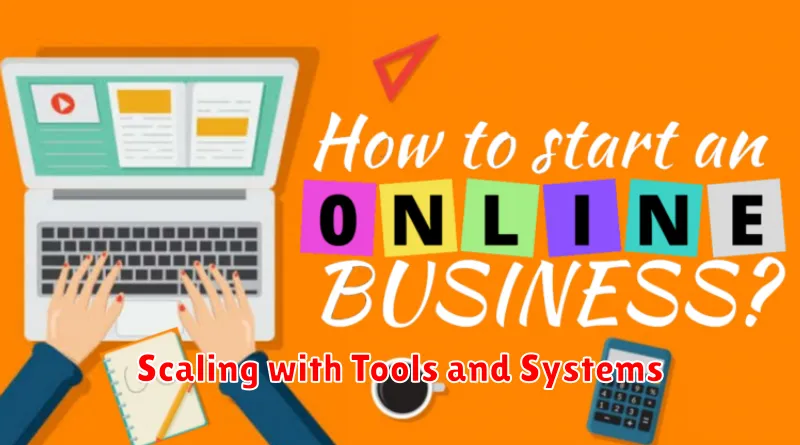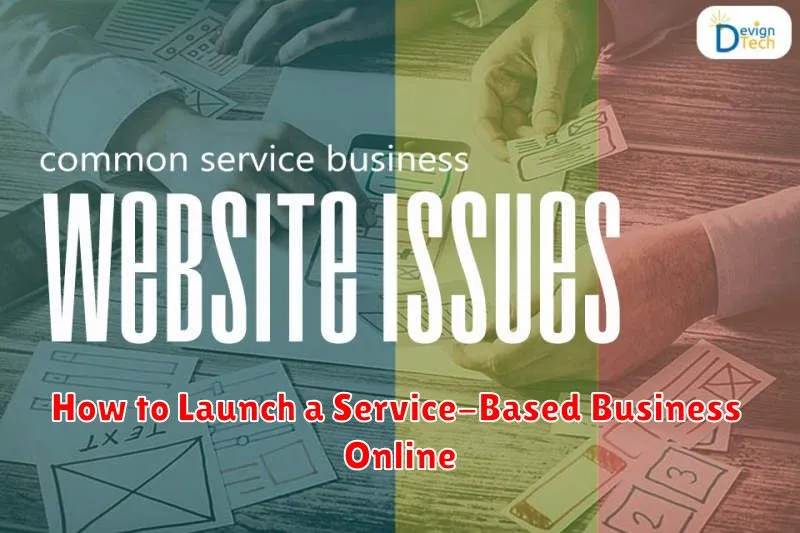Launching a service-based business online offers incredible opportunities for growth and flexibility. Whether you’re a consultant, coach, designer, writer, or offer any other type of service, the online world provides a vast marketplace to reach potential clients. This guide will provide a comprehensive roadmap on how to launch your online service-based business successfully, covering everything from defining your niche and crafting a compelling online presence to attracting clients and managing your operations effectively. Learn how to leverage the power of the internet to build a thriving service business from the ground up.
Building a successful online service business requires careful planning and execution. This article will walk you through the essential steps to effectively launch your service-based business online. We’ll delve into crafting a strong online presence, developing a targeted marketing strategy, and building client relationships that foster long-term growth. From choosing the right online platforms to streamlining your operations, you’ll gain valuable insights to navigate the challenges and capitalize on the opportunities of the digital landscape. Discover how to establish your service-based business as a reputable and profitable venture in the online marketplace.
Choosing a Niche and Offer
One of the first steps in launching a service-based business online is selecting a niche and crafting a compelling offer. Your niche defines your target audience and area of expertise, while your offer specifies the services you provide.
Focus on a niche that aligns with your skills and interests. Researching market demand is crucial to ensure profitability. Consider whether your skills are in high demand and if there’s an audience willing to pay for your services.
Once you have a niche, define your unique selling proposition (USP). What differentiates you from the competition? What value do you bring to clients? This will form the basis of your offer.
Validating Market Demand
Before investing time and resources, validate your service’s market demand. This crucial step minimizes risk and increases your chances of success.
Analyze your target audience. Who are they? What are their needs and pain points? Does your service effectively address these issues?
Conduct thorough market research. Explore competitor offerings. Identify gaps and opportunities. Analyze pricing strategies.
Test your idea. Gather feedback through surveys, interviews, and small-scale pilot programs. This provides valuable insights before a full launch.
Creating a High-Impact Website

Your website is your digital storefront. For a service-based business, it’s crucial to create a site that not only looks professional but also effectively communicates the value you offer.
Focus on clear and concise messaging. Highlight your unique selling propositions and the benefits clients gain from choosing your services. A well-structured website with easy navigation is essential for a positive user experience.
Showcase your expertise through testimonials, case studies, or a portfolio of past work. This builds credibility and trust with potential clients.
Setting Up Booking or Contact Systems
A crucial step in launching your online service-based business is setting up systems for clients to book your services or contact you for inquiries. Choosing the right system depends heavily on the nature of your services.
For businesses offering appointments (e.g., consulting, coaching), integrating a booking system is highly recommended. These systems allow clients to self-schedule appointments, minimizing back-and-forth communication. They also often provide features such as automated reminders and payment processing.
If your services don’t require specific appointment times, a contact form, readily accessible on your website, can be sufficient. Ensure the form collects essential client information and clearly outlines the next steps in the communication process. Promptly responding to inquiries is essential for building trust and securing clients.
Pricing Your Services Smartly
Pricing is a crucial aspect of your online service-based business. Setting the right price can attract clients and ensure profitability. Consider these key factors when determining your pricing strategy.
Cost of Service: Calculate all costs involved in delivering your service, including materials, software, and your time. Factor in overhead costs like marketing and administrative expenses.
Market Research: Research your competitors’ pricing to understand the current market rate. This helps you position your services competitively. Don’t undervalue your expertise, especially if you offer specialized skills.
Value Proposition: Clearly define the value you bring to clients. Highlight the benefits they receive from your services and how you solve their problems effectively. This justifies a premium price if your value proposition is strong.
Showcasing Your Portfolio or Testimonials
A compelling portfolio is crucial for showcasing your skills and expertise in a service-based business. Organize your best work samples to demonstrate the value you offer potential clients. If you’re starting out and lack a substantial portfolio, consider offering discounted services or pro bono work to build it up. Clearly present each project, highlighting the client’s challenge and the successful outcome you delivered.
Testimonials provide social proof and build trust. Request testimonials from satisfied clients, emphasizing specific results and positive experiences. Display these prominently on your website, potentially alongside corresponding portfolio pieces. Short video testimonials are particularly impactful.
Using Free Content to Build Trust
Offering valuable free content is a powerful strategy for establishing trust and credibility with potential clients. By demonstrating your expertise and providing helpful information without obligation, you position yourself as a knowledgeable and trustworthy resource. This fosters a positive first impression and encourages potential clients to consider your paid services.
Consider offering free content like blog posts, downloadable guides, short videos, or free consultations. Focus on addressing common pain points your target audience experiences. This demonstrates a genuine understanding of their needs and builds rapport.
Consistency is key. Regularly providing free content keeps your audience engaged and reinforces your expertise. This consistent engagement cultivates trust over time, making potential clients more likely to choose you when they’re ready to invest in a solution.
Networking and Client Referrals
Networking plays a vital role in acquiring clients for online service-based businesses. Actively participate in online communities related to your industry. Engage in relevant discussions and offer valuable insights to establish yourself as an expert.
Client referrals are a powerful tool for growth. Provide exceptional service to encourage satisfied clients to recommend your business. Consider implementing a referral program with incentives to further motivate referrals. Positive word-of-mouth marketing can significantly expand your client base.
Managing Time and Scope of Work
Effectively managing time and scope is crucial for a successful online service business. Clearly define the services you offer and avoid scope creep by establishing boundaries with clients. This includes specifying deliverables, timelines, and revision limits.
Time management involves accurate project estimation and prioritizing tasks. Utilize tools like calendars and project management software to stay organized. Regularly communicate with clients about progress and any potential delays.
By managing time and scope effectively, you ensure client satisfaction, protect your profitability, and maintain a sustainable workload.
Scaling with Tools and Systems

As your service-based business grows, manual processes become bottlenecks. Investing in the right tools and systems is crucial for scaling efficiently.
Customer Relationship Management (CRM) systems help manage customer interactions, track leads, and automate communication. Project management software facilitates team collaboration and keeps projects on track. Consider automating invoicing and payment processing to streamline financial operations.
Choosing scalable tools from the start will save you time and resources in the long run. Look for solutions that integrate well with each other to create a seamless workflow. Remember to prioritize tools that address your specific business needs and budget.

